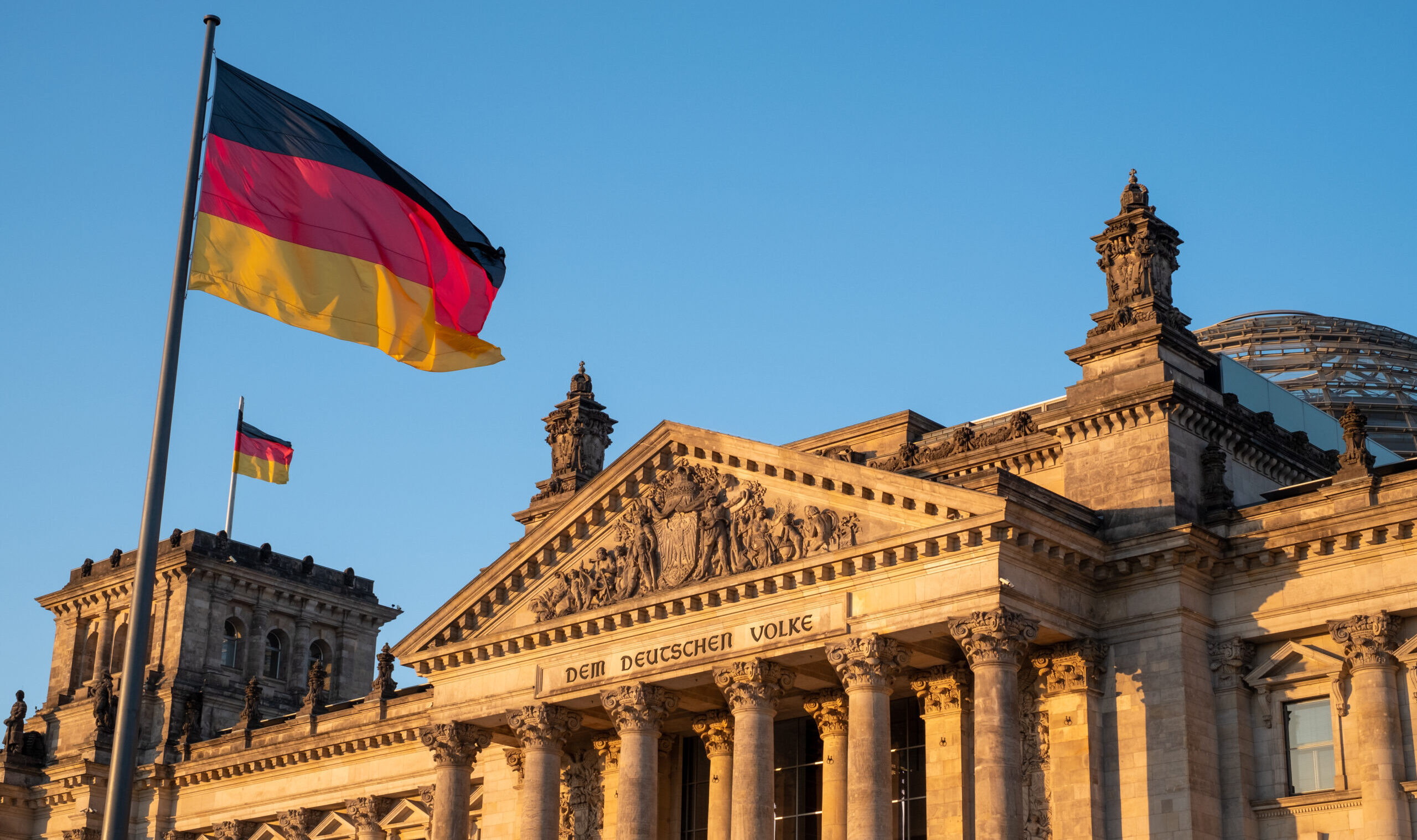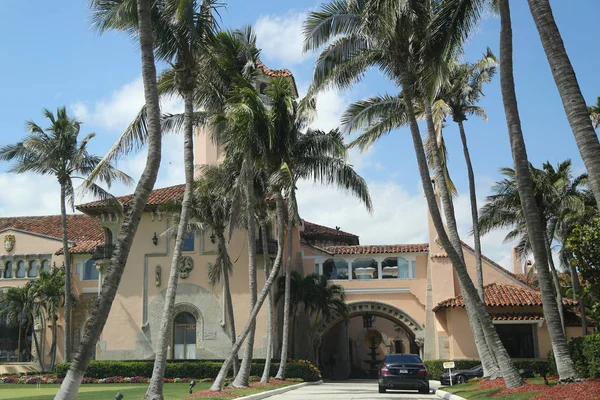Weltschmerz After Trump’s Triumph
A German perspective: The left has a meltdown, and the right must find realistic answers.

In a strange historical coincidence, two huge political events in the U.S. and Germany have happened almost simultaneously. On the same day that Donald Trump’s victory was confirmed, the self-declared “progress coalition” government of Chancellor Olaf Scholz’s Social Democrats, the Greens, and the Liberals collapsed.
November 6 brought political earthquakes on both sides of the Atlantic. Scholz fired his liberal finance minister, who had demanded a change in direction of economic policy to reverse the economic decline of the country, which is on a steep downward trajectory and struggling with a recession for the second consecutive year.
The turmoil in Berlin is the culmination of three years of hapless political incompetence. Scholz has failed dismally. Never before in post-war Germany has a government been so unpopular. 85 percent of the population is dissatisfied with the so-called “traffic light coalition,” named after the three colors of the parties involved, the Social Democrats (red), the Greens, and the Liberals (yellow). There will be new elections next March—or perhaps even earlier. The likely winner and next German chancellor will be Friedrich Merz, the leader of the Christian Democrats. But it is as of yet unclear who will be his coalition partner—the Social Democrats or the Greens?
I doubt that Merz will bring about a fundamental reversal of the policies that have caused Germany’s decline. His party was responsible for the disastrous open-door refugee policy in the time of Chancellor Angela Merkel, allowing more than two million migrants, mostly from the Middle East and Africa, to enter the country uncontrolled. Merz has stated that the enormously costly “energy transition” policies are irreversible. The only radical challenger to the ideological foundations of the establishment worldview in Germany, in left-wing, liberal or fake-conservative shades, is the right-wing Alternative for Germany (AfD).
The progressive left and also the Christian democratic mainstream is haunted by the specter of recent years’ rise of AfD, which has been riding high in polls—even becoming the strongest party in some East German regional parliaments—and demanding fundamental change, primarily in immigration policy. The AfD was the only party in Berlin to welcome Trump’s victory unequivocally. Merz’s CDU party showed serious reservations.
Donald Trump’s return to the White House sends shockwaves through Europe. His election landslide has triggered deep anxiety among the progressive elites, who profess to be worried about the ascent of “fascism” in America. One prominent climate activist, Germany’s Greta Thunberg, posted just one word, “Weltschmerz,” meaning melancholy or despair, on X. The editor-in-chief of Die Zeit, the largest weekly in Germany, called Trump’s election “a nightmare”.
Most German journalists loathe Trump no less than, and perhaps even more than, their mainstream colleagues in America’s progressive media. The coverage of the U.S. election campaign in Germany’s media was so distorted and one-sided that a massive three-quarter majority of people in my country were convinced that Kamala Harris would of course win.
“I don’t understand it,” one prominent columnist of Der Spiegel magazine wrote about the decision of educated, well-informed Americans to vote for Trump. For years, his magazine loved to print bizarre caricatures of Trump on its cover, as a mad gorilla destroying the Statue of Liberty or an orange meteorite racing toward earth and threatening total destruction. The Berlin “traffic light” government was unprepared for Trump’s return to power. Too bad—now reality comes to bite back.
Trump’s landslide victory is a shock. But it is a salutary shock. It forces the European and the German political class in particular to abandon some of their illusions and to become more grown up and self-reliant in matters of economic and security policy. Trump’s brutal and unpitying way of formulating American national interests is refreshing. It tears away the veil of fake morality, hypermorality and ideological kitsch that otherwise obscures our perception of realities and actual global power issues.
The construct of a progressive “values-based foreign policy” in the moronic form that the German “traffic light” government and Annalena Baerbock, our Green minister of foreign affairs, have dreamt up is falling apart. This hopelessly naïve foreign policy, which oscillates between pacifism and bellicosity but lacks basic knowledge of power politics, is now breaking down when confronted with an American president who ruthlessly puts his country first. Priorities are changing. The signs are pointing to a return of hard realpolitik.
This certainly does not mean the end of the West or the Western alliance. Rather, it implies a return to the basic political core of nation-states based on and pursuing national interests. In spite of many fears in Europe, it is not clear that the U.S. under Trump will throw Ukraine down Putin’s throat. Nevertheless, there will and must be a new start in relations between Washington and Moscow, which could facilitate peace negotiations. That would be welcome.
Why did Trump prevail over Harris? During the campaign, many German media have painted a completely overblown and quasi-religious picture of the vice president as a possible world “savior”, even a “Redeemer” (as Süddeutsche Zeitung, a leading national paper close to Social Democrats and Greens, would have it). The cultural gulf between our progressive elites, who dream of a German Lalaland saving world climate and, on the other hand, the rather conservative American citizenry is massive. It was too large to bridge. Our media completely failed to understand and anticipate the American voter’s motives—worries about the economy, inflation and mass migration.
America is not prepared to sacrifice its status as the world’s number one power to dreams of a world climate government, a world democracy. Actually, this has always been the case—but Trump now gives an even starker reminder of this truth. What we learn, again, from the election outcome: ordinary working Americans are fed up with throwing their tax money out the window for wokeness, left-wing identity politics, DEI ideology, climate delusions, and rampant social spending. They will not sacrifice their security and identity to a suicidal open-borders migration policy. Above all, they want to get back to a successful economic policy that benefits America and the American middle class.
Trump’s protectionist ideas and the introduction of new tariffs will hurt Germany’s export manufacturing sector. The automobile industry is clearly worried, among others. As a German, I hope that the tariffs will be modest and the damage limited. Yet we have to acknowledge that the present dire situation, the economic malaise of Germany’s traditional industries, is not due to American policy but completely homemade: Too-high energy costs due to Green energy transition policies, a high level of taxes and labor costs, and excessive bureaucracy and red tape have contributed to a steady loss of competitiveness. This now threatens the core of the German economic model. Germany was an economic powerhouse in the 19th century and rose again from the ashes of the Second World War, but for some time we have been losing out and falling behind. We lack the level of innovation that some U.S. regions generate.
The fact that Trump has Elon Musk, the most successful entrepreneur and innovator of our times, at his side also stands for a visionary departure: America literally wants to reach for the stars again. The U.S. will not allow itself to be displaced from the global top rank in terms of technology, nor allow China to overtake it in terms of innovative ability and economic power. Musk sends rockets to space and he constructs shiny Cybertrucks, while Germany’s idiotic progressives marvel at the idea of cumbersome cargo bikes replacing cars. You hardly find Musk’s rousing optimism and irrepressible will to succeed in Germany. Instead, the owner of Tesla and X is vilified. The magazine Der Spiegel recently put out a story on Musk titled “Public Enemy Number Two” and absurdly accused him of destroying democracy.
Elon Musk is hated by the European left-wing elites because he liberated Twitter/X and has restored a healthy balance of power on a platform that was previously dominated by left-wingers. He stands for maximal freedom of opinion and democratic debate. This is a vision of horror for the establishment guardians, who strive to control the discourse in this country and censor unwelcome opinions. What they dislike they dismiss as disinformation. Trump’s victory is a breakthrough in the cultural battle against the left-wing cancel culture.
What makes Trump’s victory all the more painful for Europeans and Germans is the fact that he exposes our own weaknesses and illusions in matters of security policy. The former president was quite right to lambast Germany’s totally inadequate armed forces and free-riding on American security guarantees. For three decades, including the 16 years of the Merkel government, Germany has severely underfunded its military. We continually missed the NATO target of two percent of GDP.
Senator J.D. Vance, the vice president–elect, was right when he said in a Financial Times op-ed piece this February, “Europe must stand on its own two feet on defense.” At the moment, Germany’s Bundeswehr is a limping, one-legged soldier. “The Bundeswehr can barely scrape together a single combat-ready brigade,” Vance wrote, demanding greater efforts to overcome that weakness. He has also made clear that point at the Munich Security Conference this spring. Germany’s Defense Minister Boris Pistorius has struggled to scratch together enough resources to move one single brigade to the Baltics. In late February 2022, after Russia’s full-blown invasion of Ukraine, Scholz announced a Zeitenwende, a historical change of tide. In reality, little action has followed his words. The promised €100 billion in debt-financed extra money for the Bundeswehr has failed to produce any real, significant change. Germany is still way behind the two percent NATO spending target.
Trump will once again present us with the bill that Germany’s governments, from Schröder to Merkel (and to Scholz, Merkel’s onetime Finance Minister), believed they could evade. After the fall of the communist Soviet empire, the Germans hoped to enjoy a “peace dividend” forever at the expense of national defense, staying in the shadow of NATO and under the shield of US nuclear weapons almost for free. Now is the time for revenge. Trump will force us at last to invest much more in our own armed forces. This is the precondition if we want to be more independent and sovereign.
The president-elect and his coming administration will mock us for our previous moral arrogance. Germany’s posture is often an empty, hollow attitude: telling the world how to behave morally but failing to back our own security needs with adequate military muscle. The unfortunate German tendency to lecture the world—on climate, LGBTQ, the right way to deal with past sins, and the need to overcome the nation-state in a new globalist setting—this tendency will thankfully have to end. Under Trump, we’ll stand alone in the rain.
Scholz’s government is extremely unpopular. Only 15 percent of German citizens support his Social Democratic party, and the Greens have also fallen back. Germany’s economic crisis, the migration crisis, high energy prices, super-progressive wokeness, and the rest have caused the population to turn away from the “progress coalition”. After three years, this fractious and ideologically incoherent coalition has at last collapsed. The Christian Democrats have become a little bit more conservative under Merz, who wants to give the impression that he reversed some of Merkel’s biggest mistakes, especially her open-border policy during the migration crisis. But what really worries the Berlin establishment is the rise of the right-wing AfD, because they present a radical alternative to the progressive dreams.
Trump’s “America First” policies might provide an ideological boost for right-wing parties or right-wing governments in Europe. They will also make our situation harder. We have to get a grip on our countries, our nations. But the writing on the wall points to a trend to the right, to a renewal or policies that value more dynamic, free economies, and national freedom—all this a welcome change.
The post Weltschmerz After Trump’s Triumph appeared first on The American Conservative.

